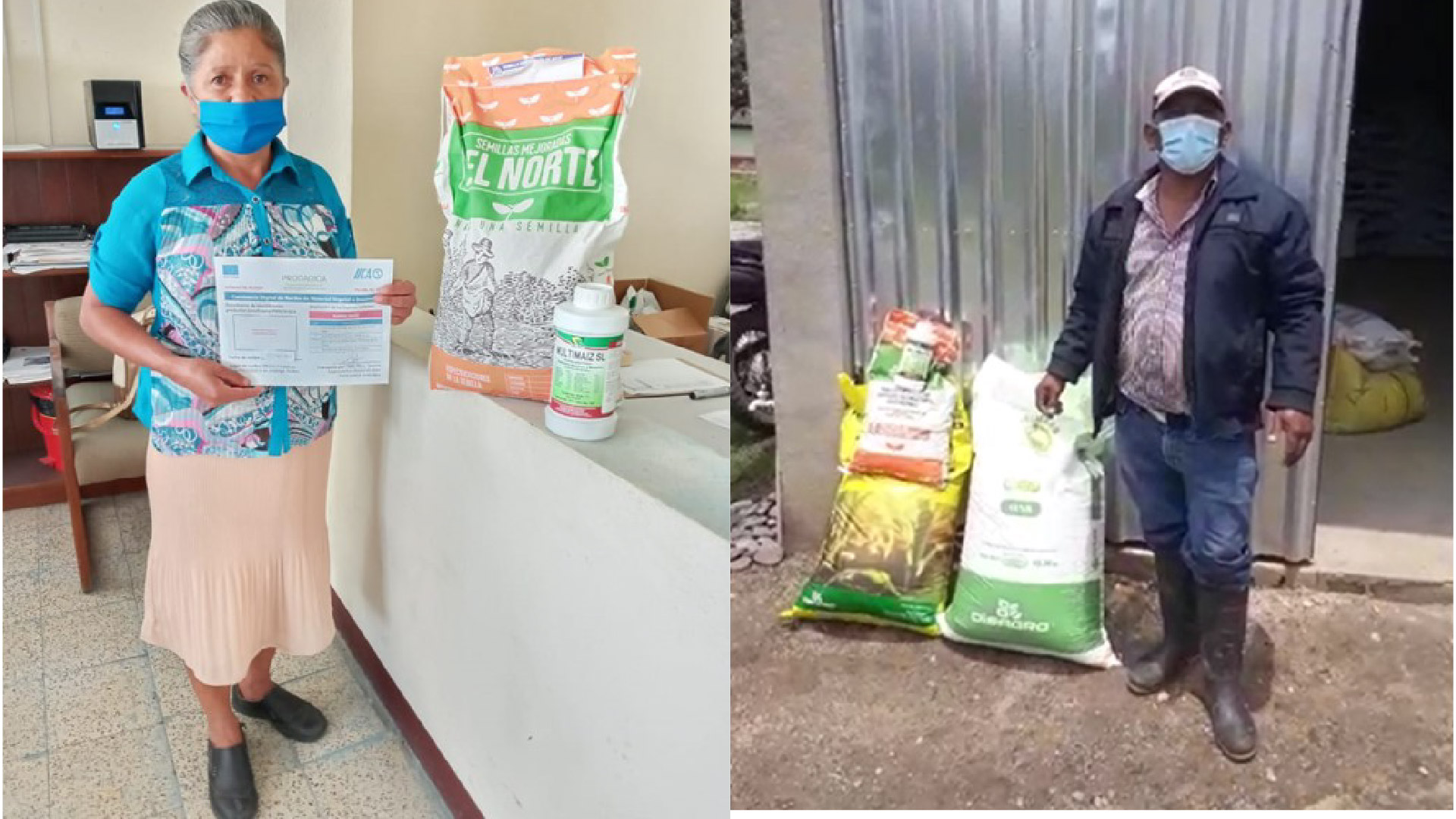The materials were distributed to families in Matagalpa, Rancho Grande, Tuma La Dalia, Jinotega, El Cuá, San Sebastián de Yalí, Dipilto, El Jícaro and Jalapa.

Managua, 19 June 2020 (IICA) – The Inter-American Institute for Cooperation on Agriculture (IICA) and the Central American Program for Integrated Coffee Rust Management (PROCAGICA) collaborated to distribute seeds and inputs to coffee farmers in several districts in Nicaragua, as part of strategic actions to assist in reducing rural vulnerability triggered by Covid-19.
The objective is to reduce vulnerability in two ways: by supporting the production of food with short cycle crops and offering farmers the opportunity to earn income by selling crop surpluses.
The technological package donation, which will benefit 1,119 coffee farmers who are members of PROCAGICA, will consist of seeds of basic grains (corn and bean) and of vegetables (squash and cushaw), as well as inputs to ensure greater productivity and quality of crops (soil and foliar fertilizers, insecticides and fungicides).
The distribution was done with the support of PROCAGICA’s partner cooperatives in the municipalities of Matagalpa, Rancho Grande, Tuma La Dalia, Jinotega, El Cuá, San Sebastián de Yalí, Dipilto, El Jícaro and Jalapa, which are communities in which the PROCAGICA program is being implemented.
Francisco Javier Cruz Tercero, a member of the Servicios Múltiples Unión Forestal (COSMUFOR) cooperative in the community of El Bote, El Cuá, Jinotega, noted that the inputs that he had received would benefit his family and himself tremendously.
He explained that, “We don’t have enough money to buy seeds and fertilizers and this will help us to earn more and to produce top quality corn. On behalf of all the partners in the cooperative, I want to thank PROCAGICA for caring enough to support small coffee farmers”.
Otilio Cruz, a farmer from Macaralí in the municipality of Jalapa, had plans for the crop that he hopes to reap on using the inputs that he had received, stating that , “I will keep a part of it to feed my family and sell the rest to earn extra income to pay for family necessities”.
Santos Cristóbal Gonzáles Pineda, a member of the CCAJ cooperative, plans to use the PROCAGICA package to plant a manzana of corn—which is approximately 0.24 acres—from which he hopes to reap roughly 70 quintals, which he will also use for family consumption, while selling the remaining surplus.
PROCAGICA—a program for which IICA provides technical oversight in collaboration with the European Union—aims to improve the living conditions of rural communities in the coffee producing areas of Central America and the Dominican Republic.
This initiative is seeking to contribute to the food security and income earning capacity of the coffee producing families who are beneficiaries of the program.
More information:
Raul Gutierrez, Technical Assistant of the Regional Implementation Unit of PROCAGICA











